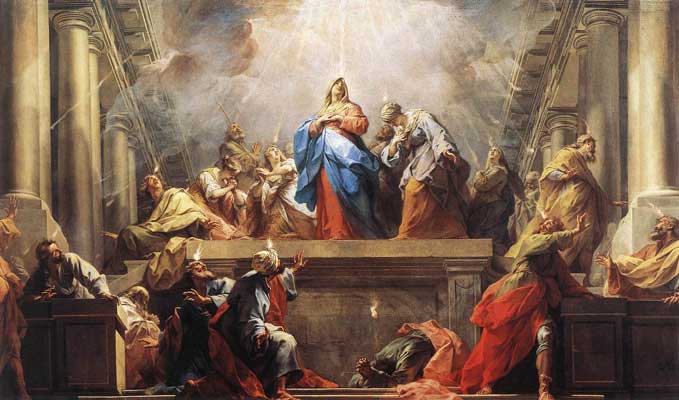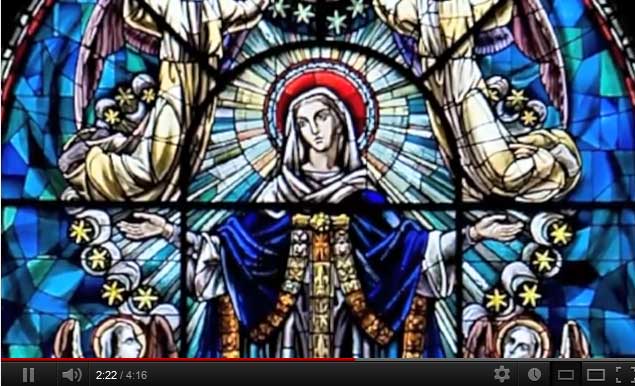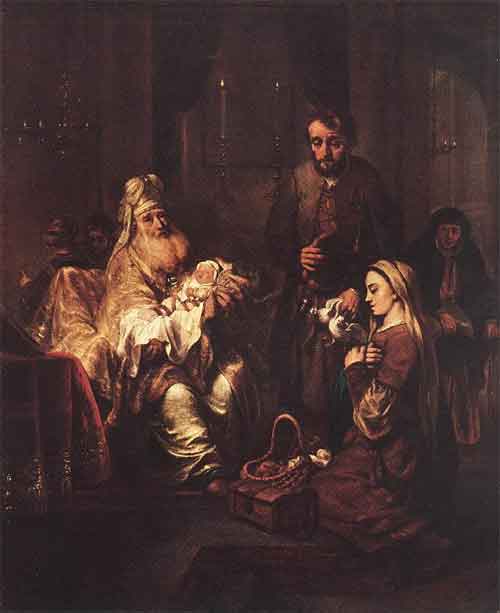Come, Holy Spirit,
Veni, Sancte Spiritus,
fill the hearts of Thy faithful
reple tuorum corda fidelium
and enkindle in them the fire of Thy love
et tui amoris in eis ignem accende
Send forth Thy Spirit
Emitte Spiritum tuum,
and they shall be created.
Emitte Spiritum tuum, et creabuntur.
And Thou shalt renew the face of the earth.
Et renovabis faciem terrae.
Let us pray.
Oremus.
O God, Who didst instruct the hearts of the faithful by the light of the Holy Spirit:
Deus, qui corda fidelium Sancti Spiritus illustratione docuisti:
grant us in the same Spirit to be truly wise;
da nobis in eodem Spiritu recta sapere;
and ever to rejoice in His consolation.
et de eius semper consolatione gaudere.
Through Christ our Lord.
Per Christum Dominum nostrum.
Amen.
Tags: eis ignem accende, Emitte Spiritum tuum, Sancte Spiritus, Sancti Spiritus
This entry was posted on Sunday, May 19th, 2013 at 8:30 am
You can follow any responses to this entry through the RSS 2.0 feed.
This extraordinary Eucharistic hymn, by the great St. Thomas Aquinas, is a fan favourite among the faithful. This version regretably leaves out the second verse. The recording is from the CD illuminations, compiled by Dan Gibson. the Latin text and English translation follow:
| Latin text | An English translation | |
|---|---|---|
|
|
Tags: Dan Gibson, faith, last supper, st thomas aquinas, thomas aquinas
This entry was posted on Monday, January 28th, 2013 at 9:54 am
You can follow any responses to this entry through the RSS 2.0 feed.
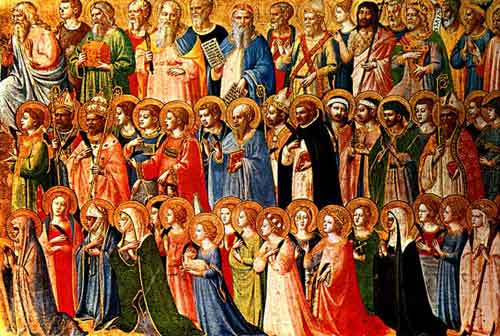 OOOOOOOh Yea ….!!!
OOOOOOOh Yea ….!!!
Tags: saints
This entry was posted on Thursday, November 1st, 2012 at 12:09 am
You can follow any responses to this entry through the RSS 2.0 feed.
Gregorian hymn chant of Roman Catholic Christian Church in honour of Mary, Mother of God. It is also a common prayer to the Virgin Mary; usually recited at the end of the rosary.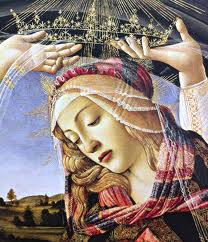
Tags: chant, prayer, rosary, virgin mary
This entry was posted on Wednesday, August 22nd, 2012 at 12:06 am
You can follow any responses to this entry through the RSS 2.0 feed.
Tags: ave maria
This entry was posted on Wednesday, August 15th, 2012 at 11:31 pm
You can follow any responses to this entry through the RSS 2.0 feed.
[powerpress = “Vatican_Radio”]
While the rest of the world was seething with the war and its evils in a lonely corner of Europe 1917 three young children had a vision of Our Lady.That apparition sparked off the devotion to Our Lady of Fatima, an inspiration for millions to work and
pray for peace.
Since that time not only have millions prayed the Rosary and done penance but have made the pilgrimage to Fatima.
Among these Blessed John Paul II who shortly after his visit there during the Jubilee Year, in the presence of the statue representing Our Lady of Fatima entrusted the third millennium to her immaculate heart.
Monsignor Philip Whitmore brings us the hymn the crowds sang on that occasion. One which tells the story of those three young shepherd children….
A programme produced by Veronica Scarisbrick.
Tags: catholic, catholic podcast, catholic prayer, cathollc spirituality, children, Europe, Monsignor Philip Whitmore, vatican radio, work
This entry was posted on Friday, May 11th, 2012 at 7:48 am
You can follow any responses to this entry through the RSS 2.0 feed.
The Ave Maria aria is sung by Desdemona (Otello’s wife) in Act 4, as she kneels in prayer with a troubled mind before going to bed.
Here is the English translation
Ave Maria, overflowing with grace,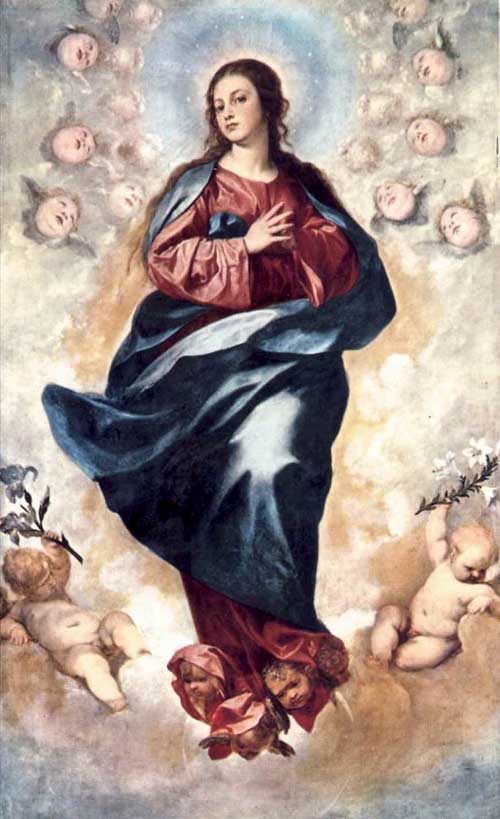
Blessed be the fruit of thy womb.
Blessed are you above all women
for delivering to us Christ Jesus.
Pray for the one
who kneels in prayer before you,
Pray for the wrongdoer
…and for the innocent,
Pray for the weak and oppressed,
…and for those in power,
For the wretched, likewise,
show your mercy.
Pray for the one suffering
cruel misfortune,
Pray for the one who bows his head
under injustice and cruel fate.
And for us… pray for us,
pray always…
…and in the hour
of our death.
Pray for us…
Pray for us…
for us.
Ave Maria . . .
…In the hour of our death.
Ave…
Amen.
Tags: ave maria, catholic, catholic podcast, catholic prayer, cathollc spirituality, Christ Jesus, classical music, death, Desdemona Otello, opera, prayer, renee fleming
This entry was posted on Sunday, March 25th, 2012 at 11:42 pm
You can follow any responses to this entry through the RSS 2.0 feed.
The greatest soprano of this generation offering the most beautiful of all prayers.
Tags: catholic, catholic podcast, catholic prayer, cathollc spirituality, classical music, hail mary, prayers
This entry was posted on Sunday, March 25th, 2012 at 11:27 pm
You can follow any responses to this entry through the RSS 2.0 feed.
The Angel of the Lord declared to Mary: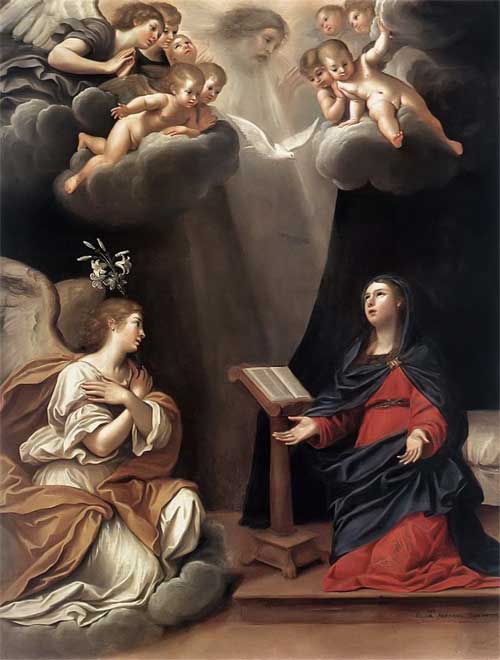
Hail Mary, full of grace, the Lord is with thee; blessed art thou among women and blessed is the fruit of thy womb, Jesus. Holy Mary, Mother of God, pray for us sinners, now and at the hour of
our death. Amen.
Behold the handmaid of the Lord: Be it done unto me according to Thy word.
And the Word was made Flesh: And dwelt among us. Hail Mary . . .
Hail Mary . . .
Pray for us, O Holy Mother of God, that we may be made worthy of the promises of Christ.
Let us pray:
Pour forth, we beseech Thee, O Lord, Thy grace into our hearts; that we, to whom the incarnation of Christ, Thy Son, was made known by the message of an angel, may by His Passion and Cross be brought to the glory of His Resurrection, through the same Christ Our Lord.
Amen.
“Hail, full of grace, the Lord is with you” (Lk 1:28)
“Blessed are you among women,
and blessed is the fruit of your womb”
(Lk 1:42).
Tags: catholic, catholic podcast, catholic prayer, cathollc spirituality, full of grace, hail mary, Holy Mary, mother of god, sacred music, the angelus, Thy Son, women
This entry was posted on Sunday, March 25th, 2012 at 3:52 am
You can follow any responses to this entry through the RSS 2.0 feed.
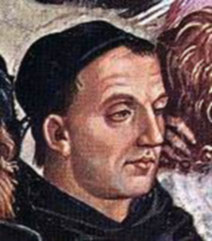 Pope John Paul IIÂ beatified Fra Angelico on October 3, 1982 and in 1984 declared him patron of Catholic artists.
Pope John Paul IIÂ beatified Fra Angelico on October 3, 1982 and in 1984 declared him patron of Catholic artists.
Angelico was reported to say “He who does Christ’s work must stay with Christ always”. This motto earned him the epithet “Blessed Angelico”, because of the perfect integrity of his life and the almost divine beauty of the images he painted, to a superlative extent those of the Blessed Virgin Mary.—Pope John Paul II
Fra Angelico (c. 1395 – February 18, 1455), born Guido di Pietro, was an Early Italian Renaissance painter described by Vasari in his Lives of the Artists as having “a rare and perfect talent”.   He was known to his contemporaries as Fra Giovanni da Fiesole (Brother John from Fiesole) and by Vasari as Fra Giovanni Angelico (Brother John the Angelic One).
Fra Angelico is known in Italy as il Beato Angelico, the term “Il Beato” (“Blessed One”) being already in use during his lifetime or shortly thereafter, in reference to his skills in painting religious subjects. Fiesole is sometimes misinterpreted as being part of his formal name, but it was merely the name of the town where he took his vows as a Dominican friar, and was used by contemporaries to separate him from other Fra Giovannis. He is listed in the Roman Martyrology as Beatus Ioannes Faesulanus, cognomento Angelicus—”Blessed Giovanni of Fiesole, nicknamed Angelico”.
Vasari wrote of Fra Angelico:
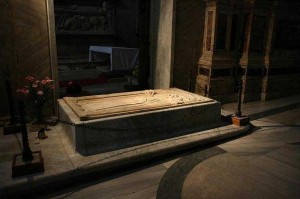
Fra Angelico, Patron Saint of Artists, is buried in the medieval church Santa Maria sopra Minerva, in Rome
But it is impossible to bestow too much praise on this holy father, who was so humble and modest in all that he did and said and whose pictures were painted with such facility and piety.
Tags: catholic, catholic podcast, catholic prayer, cathollc spirituality, sacred art
This entry was posted on Saturday, February 18th, 2012 at 8:37 am
You can follow any responses to this entry through the RSS 2.0 feed.
On the afternoon of Wednesday 2nd of February , Feast of the Presentation of the Lord , Pope Benedict XVI will preside over vespers in Saint Peter’s Basilica at 5.30 pm.
[powerpress = “Vatican_Radio”]
In an effort to prepare for this evening celebration , on this day which is also dedicated to the XVI World Day of Consecrated Life we bring you a musical meditation focusing on the Presentation: “Mary and Joseph came to the Temple to present the Child Jesus to the Lord as the Law required.The Fourth Joyful Mystery of the Rosary focuses on the Presentation in the Temple. We celebrate it liturgically forty days after Christmas on the Feast of Candlemas , when we process with lighted candles , bearing witness before the world to the light of Christ”.
In this programme presented by music historian Monsignor Philip Whitmore you can listen to a setting of the Magnificat antiphon for the first vespers of the Feast of the Presentation by Catholic composer in the reign of Queen Elizabeth I , William Byrd.
A programme produced by Veronica Scarisbrick .
Tags: catholic, catholic podcast, catholic prayer, cathollc spirituality, musical meditation, pope benedict xvi, presentation in the temple, Vatican Radio From Vatican Radio
This entry was posted on Thursday, February 2nd, 2012 at 7:02 am
You can follow any responses to this entry through the RSS 2.0 feed.
A Recent Performance of John Michael Talbot on Catholic TV program!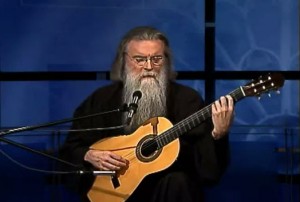
Tags: catholic, catholic podcast, catholic prayer, cathollc spirituality
This entry was posted on Wednesday, December 21st, 2011 at 12:16 am
You can follow any responses to this entry through the RSS 2.0 feed.
Music: St. Hildegard von Bingen – Veni Creator Spiritus – Performers: Anonymous 4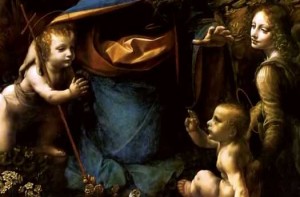
Tags: catholic, catholic podcast, catholic prayer, cathollc spirituality, Hildegard von Bingen, leonardo da vinci, sacred art, sacred music, st hildegard of bingen, St. Hildegard von Bingen, Veni Creator Spiritus
This entry was posted on Saturday, December 3rd, 2011 at 12:57 am
You can follow any responses to this entry through the RSS 2.0 feed.
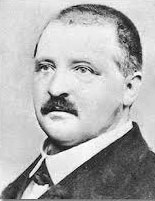 Â VATICAN CITY, 22 OCT 2011 (VIS) – This evening in the Vatican’s Paul VI Hall, the Bavarian State Opera gave a concert in honour of Benedict XVI. The programme included the Ninth Symphony and the “Te Deum” by Anton Bruckner, played by the Bavarian State Orchestra and the “Audi Jugendchorakademie”, conducted respectively by Kent Nagano and Martin Steidler.
 VATICAN CITY, 22 OCT 2011 (VIS) – This evening in the Vatican’s Paul VI Hall, the Bavarian State Opera gave a concert in honour of Benedict XVI. The programme included the Ninth Symphony and the “Te Deum” by Anton Bruckner, played by the Bavarian State Orchestra and the “Audi Jugendchorakademie”, conducted respectively by Kent Nagano and Martin Steidler.
At the end of the performance the Pope rose to thank the musicians.
Listening to Bruckner’s music, he said, “is like finding oneself in a great cathedral, surrounded by its imposing structures which arouse emotion and lift us to the heights. There is however an element that lies at the foundations of Bruckner’s music, both the symphonic and the sacred: the simple, solid, genuine faith he conserved throughout his life”.
“The great conductor Bruno Walter used to say that ‘Mahler always sought after God, while Bruckner had found Him’. The symphony we have just heard has a very specific title: ‘Dem lieben Gott’ (To the Beloved God), almost as if he wished to dedicate and entrust the last and most mature fruit of his art to the One in Whom he had always believed, the One Who had become his only true interlocutor in the last stage of his life”, the Holy Father said.
“Bruckner asked this beloved God to let him enter His mystery, … to let him praise the Lord in heaven as he had on earth with his music. ‘Te Deum laudamus, Te Dominum confitemur’; this great work we have just heard – written at one sitting then reworked over fifteen years as if reconsidering how better to thank and praise God – sums up the faith of this great musician”, Pope Benedict concluded.
“It is also a reminder for us to open our horizons and think of eternal life, not so as to escape the present, though burdened with problems and difficulties, but to experience it more intensely, bringing a little light, hope and love into the reality in which we live”.
Tags: catholic, catholic podcast, catholic prayer, cathollc spirituality, sacred music
This entry was posted on Monday, October 24th, 2011 at 12:16 pm
You can follow any responses to this entry through the RSS 2.0 feed.
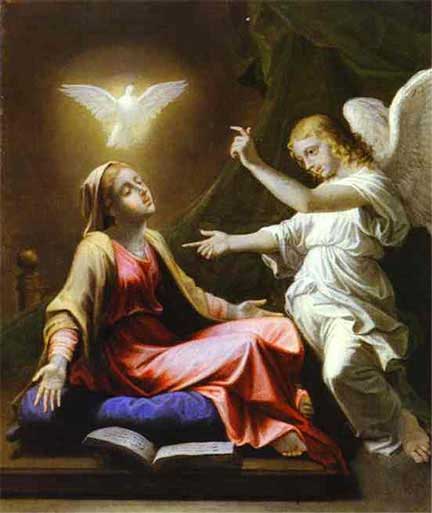 The lyrics and translation are as follows:
The lyrics and translation are as follows:
Hail Mary, full of grace, the Lord is with thee.
Blessed art thou amongst women, and blessed is the fruit of thy womb, Jesus.
Holy Mary, Mother of God, pray for us sinners, now and at the hour of our death.
Amen
Ãve MarÃa, grátia pléna, Dóminus técum.
BenedÃcta tu in muliéribus, et benedÃctus frúctus véntris túi, Iésus.
Sáncta MarÃa, Máter Déi, óra pro nóbis peccatóribus, nunc et in hóra mórtis nóstrae.
Ãmen.
Tags: catholic, Catholic Hymns of Praise, catholic podcast, catholic prayer, cathollc spirituality, death, hail mary, Holy Mary, women
This entry was posted on Sunday, October 23rd, 2011 at 12:06 am
You can follow any responses to this entry through the RSS 2.0 feed.

